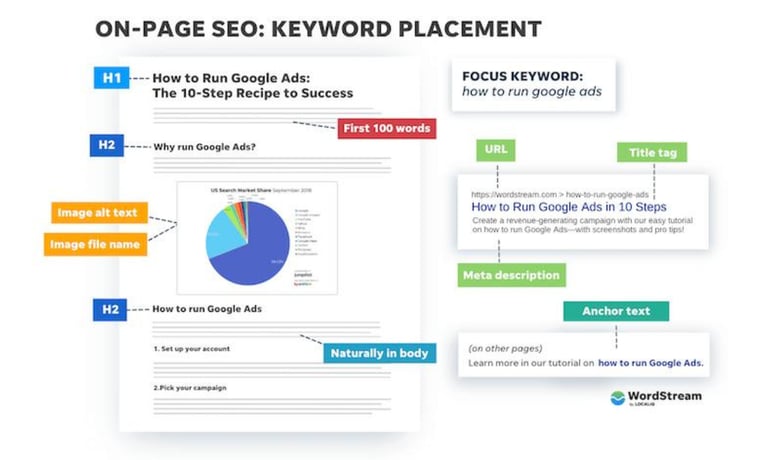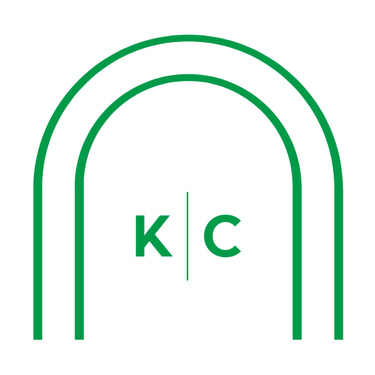Small Business Copywriting: Craft Killer SEO Website Copy
Small business copywriting: Learn how to craft killer SEO website copy. Turn your website into a master digital salesperson and make more money.
COPYWRITING


I spoke to a small business owner about search engine optimisation (SEO) once. It was over a beer in the clubhouse after a round of golf.
“Selling SEO services is like selling air,” he said, likening SEOs to snake oil salesmen.
Like this guy, you might be wary of SEO as a small business owner. Because you don’t know what you’re getting.
But small business copywriting that targets SEO is vital for your growth.
It attracts attention online
Boosts your digital presence
Drives organic traffic to your website
Let’s demystify SEO copywriting, so you can craft killer SEO website copy for your small business.
Demystifying SEO Copywriting for Small Businesses
SEO copywriting is creating content to rank well in search engine results pages (SERPs). But the writing should also engage your target audience and offer an excellent user experience.
The best small business copywriting puts people first.
SEO copywriting combines persuasive writing with technical optimisation techniques. It improves your online visibility and increases website traffic.
Demystifying the complexities of SEO copywriting helps you optimise your content for search engines and users.
You should cover these key areas to optimise your small business copywriting for search engines and users.
Keyword research
Search intent
Meta tags
Compelling copy
Formatting
Action
Understanding these areas will help you write small business copy that attracts attention and converts.
Keyword Research
Keywords are fundamental building blocks in SEO copywriting. With keyword research, you identify the terms your audience uses when searching for information related to your industry.
You should include these words in your website copy. It helps search engines understand the relevance of your pages while ensuring they meet readers’ expectations.
Effective keyword research lets you create content that helps people find your website through search engines like Google. It's about understanding what words people are typing into the search bar so you can give them the info they're looking for.
Here are 5 ways you benefit from effective keyword research.
Improved Visibility - Optimising your website with keywords increases the chance of your pages appearing in search engine results, leading to better visibility.
Targeted Traffic - Using the right keywords attracts visitors interested in your business, increasing the likelihood of conversions.
Better User Experience - You create a better user experience with content that matches search intent. Visitors find what they're looking for and stay on your website for longer.
Competitive Advantage - Analyse your competitors' strategies and identify gaps in the market with keyword research. It helps you stay ahead of the competition and tailor your content to stand out.
Content Plan Guidance - Get valuable insights like trending topics, long-tail keywords, and related terms. Develop a content plan that resonates with your target audience and addresses their needs.
Search Intent
Search intent (or user intent) is the purpose someone has when they perform a search on a platform like Google. You want to understand why someone is searching for something online.
Search engines try to deliver the most relevant results based on the intent behind the search query.
Here are the four main types of search intent:
Informational Intent - The user wants information or answers to a question like "How do I bake a cake?"
Navigational Intent - Searching for a specific website or webpage like "Midjourney login."
Transactional Intent - The searcher intends to make a purchase. For Example, "Buy iPhone 15."
Commercial Investigation Intent - The user is researching products or services with the intention of buying later. For instance, "Best Brisbane Copywriting."
Understanding search intent is crucial for your small business because it ensures your copywriting aligns with what users are looking for. It sets you up to attract the right audience and give them what they want.
Meta Tags
Meta tags are like small labels that you attach to a webpage's code. They make sure search engines and web browsers have information about the content of a page.
Think of them as titles or brief descriptions offering hints about what's inside the webpage. They should have the page's title and a short summary, including keywords related to the content.
Search engines use meta tags to understand what the page is about and display it in relevant search results. You might say they help websites communicate with search engines, improving how pages appear in search results.
Two meta tags you must complete for SEO are:
1. Title Tag
Probably the most crucial meta tag. It specifies the title of the webpage and displays as the clickable link in search engine results.
Make it concise and descriptive, and include relevant keywords.
Aim to keep the title tags under 60 characters - like the one I’m using for this article “Small Business Copywriting: Craft Killer SEO Website Copy.”
2. Meta Description
Outlines a brief summary of the page's content and appears below the title in search results.
It should be compelling and informative, encouraging users to click on the link. Aim to write meta descriptions of about 155 to 160 characters.
Compelling Copy
Although focusing on optimisation is important, never lose sight of your readers. The success of small business copywriting lies in creating quality copy that resonates with your target audience.
Consider the following:
Needs
Desires
Pain points
Understanding your audience helps you craft compelling copy that captivates and converts readers.
Use storytelling to evoke emotions and show the benefits of your services. Your stories can be short and simple.
Say you’re a business owner in the fitness industry. You could use this copywriting micro-story.




You don’t need to complicate storytelling. This example is only 15 words.
Engaging readers with compelling copy keeps them on your site and contributes to your SEO success.
Formatting
The way you structure your website copy plays a huge role in the user experience. So, formatting is crucial for killer SEO website copywriting.
Never format your pages with blocks of text. People will avoid your site like it’s spoiled chicken.
Use the best formatting practices to make your web pages inviting to readers.
Numbered lists
Bullet points
Bold font
Images
Videos
Making the copy easy to skim enhances the user experience. Because people scan the page when they read online.
Action
Don’t underestimate the power of persuasive language in small business copywriting. You’ve covered keyword research, search intent, and meta tags so people land on your site.
Compelling copy and skimmable formatting make them stick around. Everything is going according to plan.
Now it’s time to drive action.
Including actionable words in your copy can influence your readers’ behaviour. With persuasive product descriptions and powerful calls to action (CTAs), you want visitors to convert.
Experiment with different action words like these:
Transform
Discover
Unleash
Boost
Evoke a sense of urgency and excitement in your readers. Strong and actionable verbs can persuade your audience to take the desired actions.
Buying a product
Getting a free quote
Downloading a guide
And consider the power of social proof in your copy. Include testimonials, reviews, and case studies.
Building trust and credibility helps drive your audience to action - learn more about copywriting.
Ignite the Power of Keywords for Small Business Copywriting


By now, you know the significance of keywords. Another essential step in small business copywriting is where you position keywords on the page.
This is a part of on-page SEO.
Incorporating keywords strategically throughout your content - including in your URL, headers, body text, and meta tags - can significantly improve your visibility in search results.
The on-page SEO infographic below shows you where to place keywords for the best results.
Strike a balance to evade the Google chopping block.
Avoid keyword stuffing because it negatively impacts user experience and leads to penalties from search engines. You don’t want Google cutting the head off your website and bleeding traffic to a trickle.
Instead, focus on creating content that is relevant, informative, and valuable to your readers.
Include your targeted keywords naturally.
Also, consider targeting long-tail keywords. These are longer and more specific phrases, often with lower competition.
With long-tail keywords, you can attract highly relevant traffic and increase your chances of ranking well for precise search queries.
Local SEO
Use local SEO to target people searching for local businesses. Say you’re a mechanic in Brisbane. You could target the following:
Brisbane mechanic
Mechanic Brisbane
Best mechanic in Brisbane
Mechanic in Brisbane
Mechanic near me
Also, target your keywords for locations in the surrounding suburbs. This helps you appear on Google when people search for your services in those areas.
Competitor Analysis
Online competition is fierce. Every business out there is like the middle child, vying for attention.
Doing thorough competitor keyword analysis helps you gain a competitive advantage. Check out your competitors' SEO strategies, content performance, and keyword rankings.
The info allows you to identify opportunities and develop a robust SEO copywriting plan for your small business.
So what do competitor analysis and execution involve?
Check your competitors' top-performing pages - I use Ahrefs.
Note what keywords they’re ranking for - check position and keyword difficulty.
Create a list of keywords with low difficulty and decent search volume - I usually aim for >20 monthly searches.
Look at your competitors’ website pages ranking for these keywords - note what they do well and what you could improve.
Create pages on your site targeting the keywords with better content - never copy what your competitors do, but build on their strengths and expose their weaknesses.
Leveraging E-E-A-T
Google uses E-E-A-T to rank content. It stands for this:
Expertise - Covers subject matter expertise, meaning your website copy should show knowledge of the topic.
Experience - Shows your first-hand experience in your field, so highlight your 20 years of experience if you have it.
Authoritativeness - Refers to your overall industry reputation, based on website content and authority (more backlinks = higher authority).
Trustworthiness - Focuses on trust signals, like valuable and original content and good customer reviews, so Google knows your business is trusty.
These factors determine your online credibility. Google wants to promote reliable businesses because it shows people can trust the search engine.
So, create high-quality content that establishes your business as a top voice in your niche. Showcase your credentials, highlight testimonials and reviews, and foster positive relationships within your industry.
The Art of Concise and Engaging Copywriting


It’s harder to grab and hold attention than ever before. For effective SEO copywriting, it's vital to master the art of concise and engaging writing.
Break down complex information into easily digestible paragraphs
Use subheadings and bullet points to improve readability
Avoid unnecessary jargon and fluff. Focus on delivering your message in a clear and concise manner.
Some ways to catch and hold attention are:
Compelling storytelling techniques
Engaging anecdotes
Data-driven facts
Engaging copy is more likely to get shared, linked to, and referenced by other websites. This helps boost your SEO rankings.
Navigating the Volatile World of SEO for Small Business Copywriting


As search engine algorithms continue to evolve, staying ahead of the curve is essential for your small business copywriting. Knowing the latest insights and trends in SEO can give you a competitive edge.
Algorithm Changes
A key aspect of staying informed is keeping an eye on algorithm changes. Search engines like Google constantly update their algorithms. You can adapt your strategies and ensure your small business copywriting aligns with the latest requirements.
Voice Search Optimisation
Another trend in SEO is voice search optimisation. More people are using voice commands to search for information these days.
Optimising your content for voice search involves understanding how people phrase their queries when using voice commands. You then incorporate those phrases into your content.
Mobile-First Indexing
Most people search on their phones. So, search engines now prioritise mobile-friendly websites in their search results. Ensure your website is optimised for mobile devices, with responsive designs and fast loading times.
User Experience
Google execs want people to enjoy using their products. So, they promote websites most likely to give searchers what they want.
And user experience (UX) is an important part of this. Google is the middleman for information.
Promoting websites that are hard to read with slow loading times would be bad for business. People would lose trust in Google.
So, Google accounts for UX (page load speed, mobile-friendliness, and overall user satisfaction) when ranking websites.
Create web copy that gives users a seamless and enjoyable experience to boost your SEO rankings.
Test for Success
SEO small business copywriting is not set-and-forget. It needs ongoing testing and refinement for the best results.
Analyse your data to identify what works and what doesn't. Then, make data-driven decisions to improve your content.
You might need to try different headlines, keywords, content lengths, and formats. It helps you find the best combination for your audience and search engines.
Embracing a test-and-learn mindset keeps you ahead of the ever-evolving SEO landscape.
Conclusion
SEO copywriting is a powerful tool for your small business. It attracts attention online, boosts your digital presence, and increases organic traffic to your website.
Like the businessman who compared selling SEO services to selling air, many people get mystified by SEO. But it doesn’t need to be complicated.
Using the info in this article will help you on your way to crafting killer SEO website copy.
As a small business owner myself, I know how busy you get running your business. And you might not have time to focus on your copywriting.
That’s where I can help.
You might need a small business copywriter to convert more website visitors into customers.
Or maybe you need content writing services to build your industry authority.
Get in touch for a no-obligation consultation to chat about your needs.
